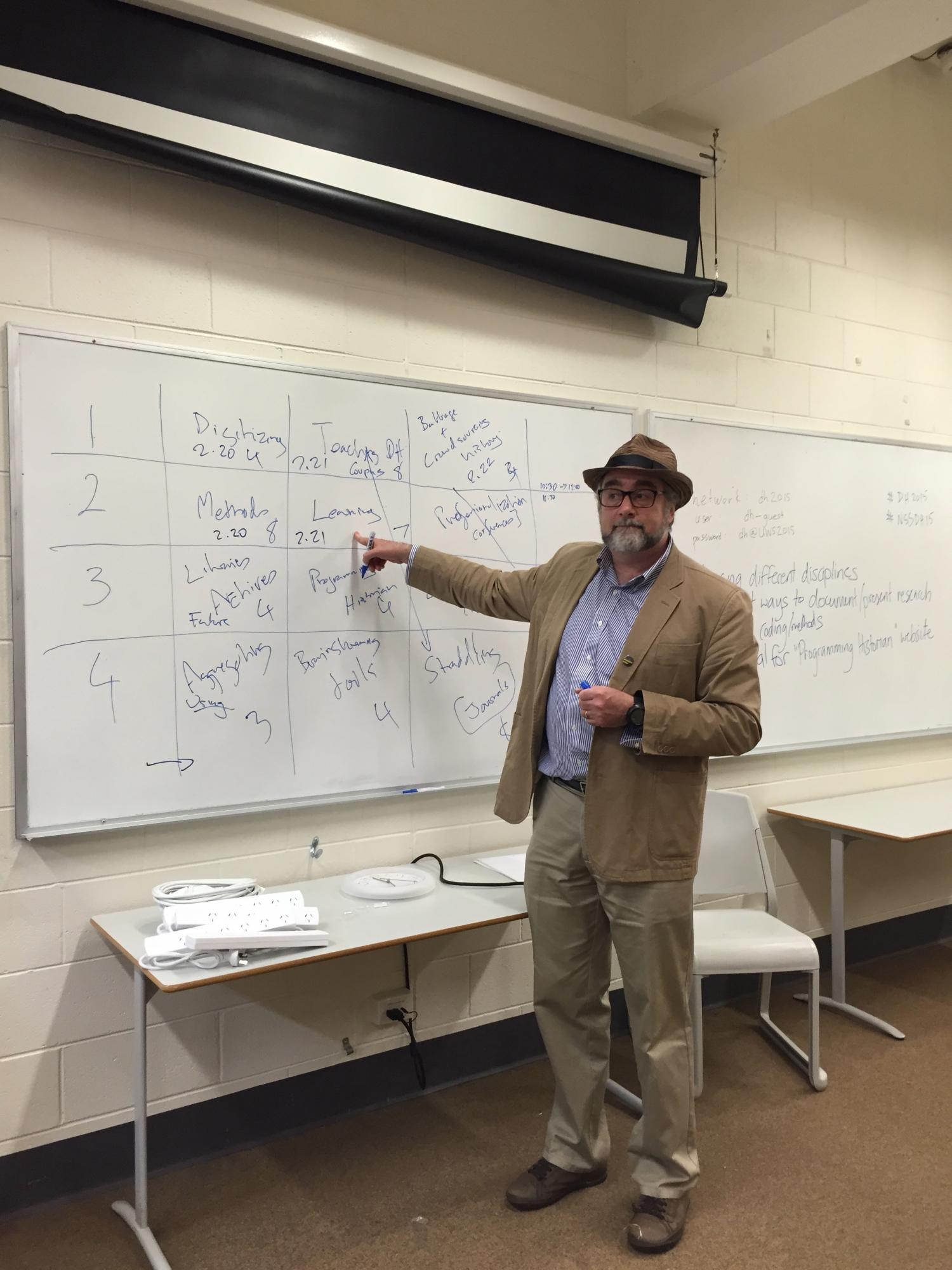NSS Notes on Straddling Disciplines, Determining Methods
Some context. Following Kara Kennedy’s elegant summary of the New Scholars Seminar preconference that was co-sponsored by centerNet, CHCI, and the University of Western Sydney, here are some notes from some of the “unconference” sessions that took place on June 29, 2015.
A preliminary note. During the main conference, I found out that the term “unconference” was not well known among the participants, perhaps because many attendees are new to fields related to libraries, technology, and digital humanities. An unconference is a conference in which the participants create the agenda for themselves, on the spot. See THATCamp to learn more.

Goeffrey Rockwell of the University of Alberta and centerNet took charge of the whiteboard at the start and helped the participants organize their ideas into four sets of simultaneous sessions, as follows:
- Digitizing; straddling disciplines as digital humanists and journals in which to publish; crowdsourcing history
- Metadata; learning
- Libraries and archives and the future; the programming historian; ethics code(s)
- Aggregating and using libraries; brainstorming tools that are missing
Notes from sessions. One participant opened the session on straddling disciplines as digital humanists by observing, “Humanities wants to stay in the Dark Ages and pretend that the Internet doesn’t exist.” The participants talked about the Internet as a subject of study as distinguished from digital humanities. There was some discussion of whether digital humanities itself constitutes a discipline or a method; there appeared to be a consensus around posing it as a method complementary to what humanists already do, as opposed to a substitute.
The participants found that their digital humanities work brought them to bridge disciplines. They might be told “Great idea; why don’t you do that?” and then not know what to do next, whom to ask for resources and advice. Those who had experienced research groups and interdisciplinary laboratories recommended the collaborative approach. They recognized that traditionally in the humanities the scholar was expected to work alone, heroically; only in library science is the collaborative model fairly standard.
A useful piece of advice that was shared about explaining one’s work to a dean or others who might be unfamiliar with digital humanities is that it is most useful to describe the goals, without describing too much of the nitty-gritty of the digital tools needed to get there.
A session on methods in the digital humanities moved into a discussion of whether there are actually methods in the humanities. Some argued there are indeed methods, but they are not as often recognized, discussed, and taught as in the social sciences. One participant advocated for courses on the history of humanities comparable to courses on the history of science. A distinction was made between method (=tool) and methodology (=epistemological). Some thought that articles on the digital humanities were trying too hard to imitate a social science formula by devoting too much space to method. Interpretation of the data is the work of the humanities, pointed out one participant; we also use all sorts of methods in interpretation and we should be just as explicit about them. Another added that there should be room to be honest and explicit about your assumptions and creative about your methods, without separating the methods from the rest of the work.
The participants were interested in creating a list of theorists, including media theorists, whose work might be applicable to digital humanities, including work in other languages on the digital (such as Siegert in German) that needs to be translated into English.
--Contributed by Sylvia K. Miller, Senior Program Manager, CHCI